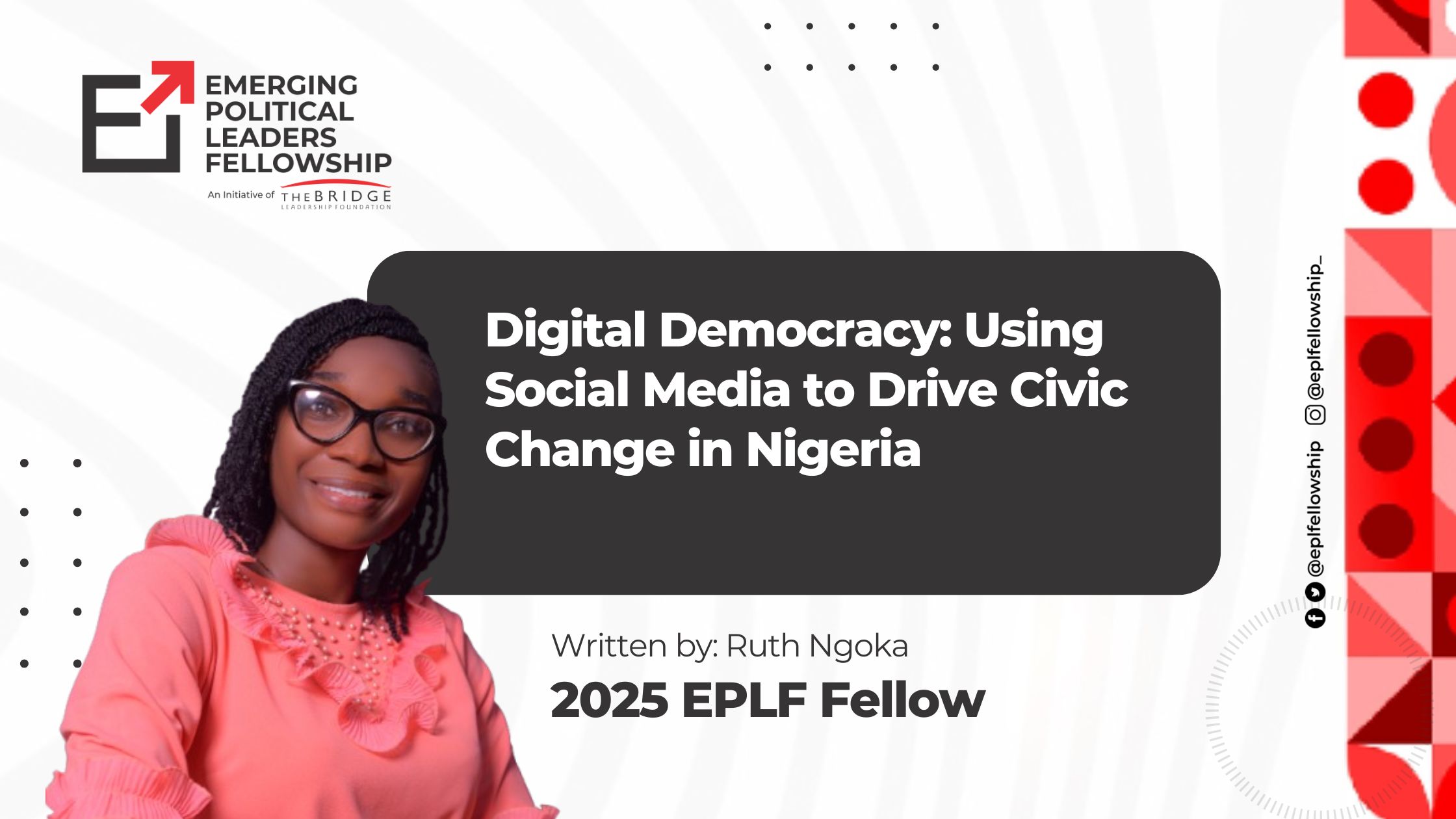An Article by by Dr. Ruth Ngoka; 2025 EPLF Fellow
In a country where traditional politics often feel distant from everyday people, social media has become the new town hall, a space to amplify voices, share ideas, and spark civic change. Digital democracy means using digital tools, especially social media, to promote democratic participation and political engagement. Civic change is meaningful social progress achieved when citizens actively participate, especially marginalized groups, to reshape policies and systems that better serve everyone’s rights and needs.
In Nigeria, where youth under 35 make up over 70% of the population, the power of digital democracy lies squarely in their hands. Nigeria faces major challenges like corruption, police brutality, poor governance, electoral fraud, and youth unemployment. These issues have caused apathy, but social media platforms like X, Facebook, Instagram, TikTok, and WhatsApp are transforming civic engagement and empowering a new generation of activists.
The 2020 #EndSARS movement shows digital democracy in action, starting as a hashtag and growing into a major youth protest against police brutality. Using social media, young Nigerians organized protests, raised funds, and gained global support without central leadership. Campaigns like #NotTooYoungToRun and #EndBadGovernance also highlights how youth voices online can shape national policy.
Key Elements of Civic Change:
1. Civic Participation: Involvement in voting, protests, petitions, and public discussions.
2. Advocacy: Pushing for legal, policy, or societal reforms.
3. Accountability: Demanding transparency and responsible leadership.
4. Inclusion: Promoting fairness for all, especially women, youth, people with disabilities, and marginalized groups.
As Nelson Mandela said, “Sometimes it falls upon a generation to be great.” For Nigerian youth, that time is now. Despite challenges like the 2021 Twitter ban and proposed strict social media rules, these actions highlight the need to protect online spaces for civic participation. Limiting online voices hampers democracy, which relies on free expression. In 2023, over 10 million young Nigerians registered to vote after online mobilization, showing that digital tools spark change, but real impact happens when online activism turns into offline action.
How Youths Can Use Social Media for Civic Change
1. Share clear, accurate info about rights, policies, and governance.
2. Use respectful language and avoid insults or hate.
3. Tag public officials politely. Ask questions and offer ideas.
4. Post real-life issues affecting you or your community.
5. Connect with others working for change. Join civic groups online.
6. Track government promises and share facts to encourage transparency.
For leaders and institutions, this era is an opportunity, not a threat. They should embrace digital feedback, communicate openly, and use social media for dialogue, not just propaganda. As Barack Obama said, strong democracies thrive on open debate and unity despite differences.
I believe that digital democracy goes beyond tweeting at politicians; it’s about using online spaces to build trust, demand justice, mobilize others, and actively engage in governance. For young Nigerians, democracy is a daily responsibility not a spectator sport. The digital pen is now in the people’s hands, let’s maximize it!


Comments (3)
Digital media indeed has democratised access to information helping especially young people to know more.
The need to use social media responsibly to initiate, demand, and sustain accountability is at an all-time high.
Absolutely, in our hands…no more excuses.
Great read. I particularly love the line “real impact happens when online activism turns to offline action”.
With digital media, the young Nigerian population is poised to change the narrative of our democracy and chart the path of progress.
Well done, Dr. Ngoka.
This is an inspiring and impactful article. If Nigerian youths can maximize the social media more for advocacy instead of doing frivolous things, our leaders will take us more serious and it will bring more change to our nation
Comments are closed.